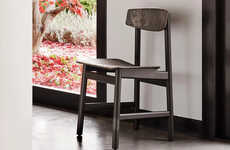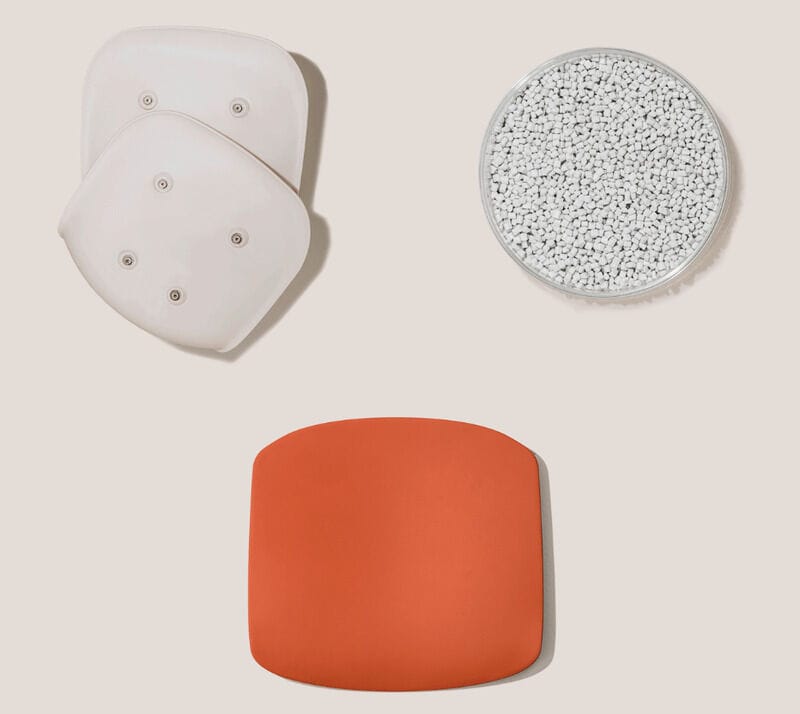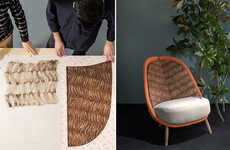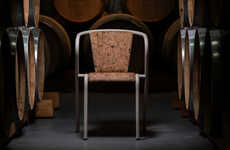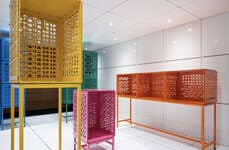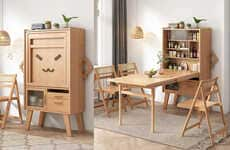
Arper’s Mixu Chair Was Designed with Sustainability at Its Core
Last month, Arper marked Plastic Free July by highlighting its sustainably designed products and the Mixu Chair, in particular.
The chair's construction showcases the use of post-industrial recycled polypropylene for the seat, which offers continued recyclability and highlights the potential of reusability. The backrest, on the other hand, is made from fully recyclable, high-performance virgin polypropylene that is reinforced with fiberglass. The Mixu Chair's base is crafted from 70 percent recycled steel while the gliders are entirely composed of recycled plastic.
Notably, the Mixu chair's adaptability and range of materials and design options underscore Arper's efforts to cater to diverse design preferences while maintaining sustainability. The mindfulness embodied by the Mixu Chair includes the piece's ease of disassembly to minimize its carbon footprint and facilitate responsible disposal at the end of its lifecycle.
Image Credit: Arper
The chair's construction showcases the use of post-industrial recycled polypropylene for the seat, which offers continued recyclability and highlights the potential of reusability. The backrest, on the other hand, is made from fully recyclable, high-performance virgin polypropylene that is reinforced with fiberglass. The Mixu Chair's base is crafted from 70 percent recycled steel while the gliders are entirely composed of recycled plastic.
Notably, the Mixu chair's adaptability and range of materials and design options underscore Arper's efforts to cater to diverse design preferences while maintaining sustainability. The mindfulness embodied by the Mixu Chair includes the piece's ease of disassembly to minimize its carbon footprint and facilitate responsible disposal at the end of its lifecycle.
Image Credit: Arper
Trend Themes
1. Sustainable Material Usage - The Mixu Chair showcases the use of post-industrial recycled polypropylene and fully recyclable, high-performance virgin polypropylene, highlighting the potential of reusability and continued recyclability.
2. Adaptive Design - The Mixu Chair's adaptability and range of materials and design options cater to diverse design preferences while maintaining sustainability.
3. Ease of Disassembly - The Mixu Chair's ease of disassembly minimizes its carbon footprint and facilitates responsible disposal at the end of its lifecycle.
Industry Implications
1. Furniture Manufacturing - Furniture manufacturers can explore the use of sustainable materials like recycled polypropylene and adaptability in designs to create eco-friendly products.
2. Interior Design - Interior designers can incorporate sustainable furniture options like the Mixu Chair into their projects, considering its range of materials and design options.
3. Recycling Industry - The recycling industry can benefit from the increased demand for post-industrial recycled polypropylene and opportunities to recycle and responsibly dispose of furniture components like the Mixu Chair.
5.6
Score
Popularity
Activity
Freshness


